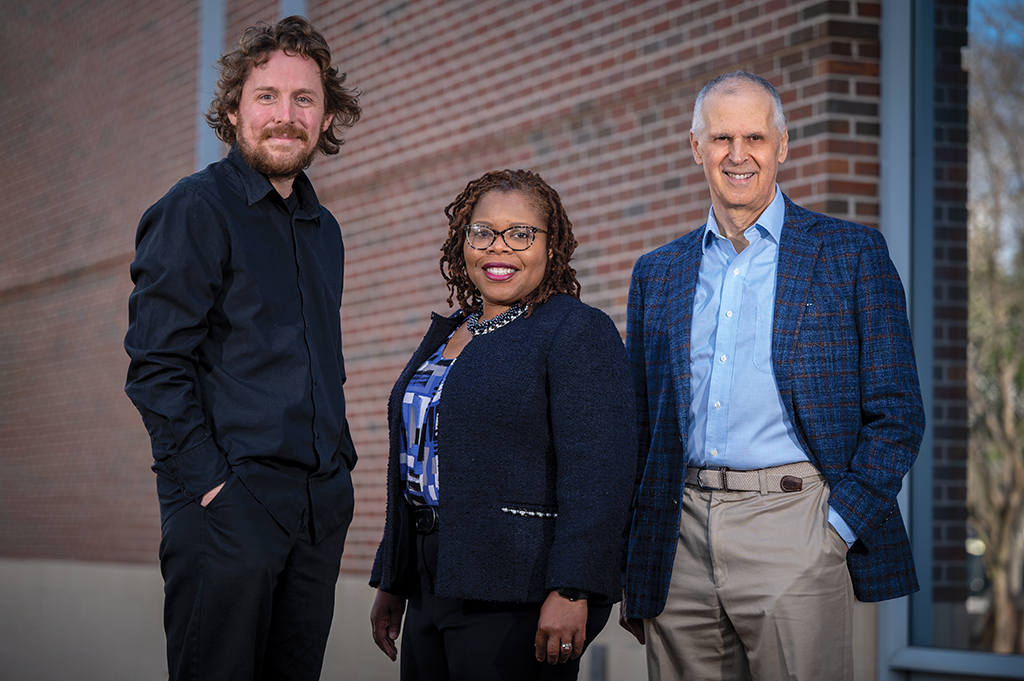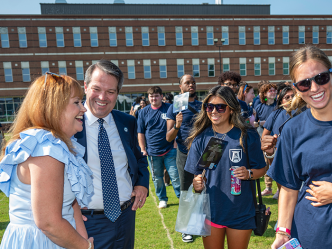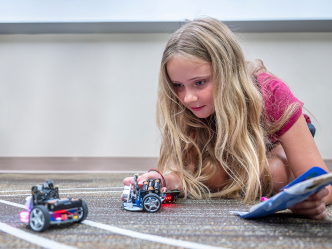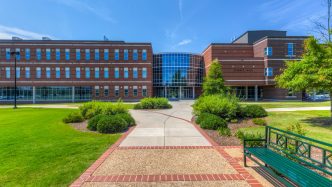Many scientific discoveries have transformed our lives and public health, and academia plays a significant role in the discovery process. Universities, and research institutions in particular, are eager to increase the flow of discoveries from life sciences research — but the how is less clear.
To better understand the driving factors of quality research and scientific productivity, a new study is coming from the Biomedical Research Innovation Laboratory at Augusta University. Its leader, Dr. Andrew Balas, public health professor in the Department of Interdisciplinary Health Sciences in the College of Allied Health Sciences, believes that comparing various research strategies and learning from the best of them leads to new ways to grow, which is the driving force behind his recently awarded National Institutes of Health R01 grant.
One million new articles are indexed by the National Library of Medicine every year. Every day, 75 new randomized clinical trials are published. Meanwhile, studies also show that a number of these scientific publications are not reproducible — meaning they cannot be used to further science or practice.
“Research is so vast nowadays that it’s becoming a legitimate subject of study,” said Balas, who is the principal investigator on the project. “We need to find out what makes good research, what are the safeguards, and also how institutions can expand their research activities.”
The $600,000 three-year project funded by the NIH is focused on distinguishing practices of outstanding productivity and expansion in biomedical research. The grant will help the investigative team of the Biomedical Research Innovation Laboratory and co-investigators Drs. Tiffany Townsend and Clément Aubert in the study of fast-growing research laboratories and institutions.
Innovative data science methodologies will be used for integrating information from multiple national and international databases. These datasets are increasingly and publicly available, but have never been processed and analyzed from the perspective of studying the rapid growth of research institutions or the lack of growth in others. The project has multiple goals:
- To identify distinctive outcome characteristics and best practices of fast-growing research organizations and laboratories, and portray them in comparison to peers (other organizations of analogous size);
- To elucidate the critical success factors of expansion, clustering and productivity increases in research organizations and laboratories, with particular attention to mobilizing diverse talents for biomedical research;
- Develop new and balanced metrics of resources and productivity of biomedical research, including diversity of research workforce and entrepreneurial outcomes.
The origin of Balas’s current project started when he was working on his book, which analyzed the expertise of Nobel Prize winners and other award-winning scientists and research universities. It showed the potential of exploring institutions that have “doubled, tripled or quadrupled” their biomedical research over the past 10 years and compared them to those that are in a steady or shrinking state. Ultimately, this project is poised to find new ways that can lead to more scientific results and discoveries, he said.
“That’s a challenge to all universities: how they can expand their research, and a good way to do that is looking at the best practices and learning from that,” Balas said.
 Augusta University
Augusta University




